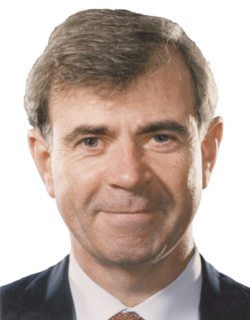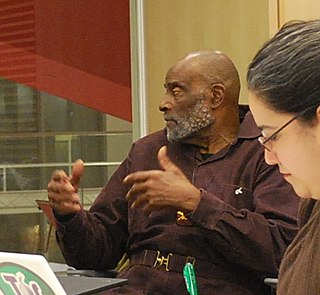
Kevin Hagan White was an American politician best known as the Mayor of Boston, an office he was first elected to at the age of 38, and which he held for four terms amounting to 16 years, from 1968 to 1984. He presided as mayor during racially turbulent years in the late 1960s and 1970s, and the start of desegregation of schools via court-ordered busing of school children in Boston. White won the mayoral office in the 1967 general election in a hard-fought campaign opposing the anti-busing and anti-desegregation Boston School Committee member Louise Day Hicks. He was earlier elected Massachusetts Secretary of the Commonwealth in 1960 at the age of 31, and resigned from that office after his election as Mayor.
Walter F. Timilty, Jr. is a Democratic member of the Massachusetts Senate from the Norfolk, Bristol and Plymouth district. Previously, he represented the 7th Norfolk District in the Massachusetts House of Representatives.
Thomas F. August was a Massachusetts attorney and politician who served as the 31st Mayor of Somerville, Massachusetts. August lost re-election in a three-way race with Eugene C. Brune, who won by 2,400 votes, and Michael E. Capuano, who succeeded Brune.

The Boston mayoral election of 1991 occurred on Tuesday, November 5, 1991, between Mayor Raymond Flynn and Edward J. Doherty, president of the Boston Teachers Union. Flynn was re-elected to his third term.

The Boston mayoral election of 1987 occurred on Tuesday, November 3, 1987, between Mayor Raymond Flynn and City Council member Joseph M. Tierney. Flynn was re-elected to his second term.

The Boston mayoral election of 1983 occurred on Tuesday, November 15, 1983, between City Councillor Raymond Flynn and former State Representative Mel King. Flynn was elected to his first term, and inaugurated on Monday, January 2, 1984.

The Boston mayoral election of 1975 occurred on Tuesday, November 4, 1975, between Mayor Kevin White and state senator Joseph F. Timilty. White was elected to a third term.

The Boston mayoral election of 1971 occurred on Tuesday, November 2, 1971, between Mayor Kevin White and United States Representative Louise Day Hicks. This was the second election in a row between White and Hicks. White once again defeated Hicks and was elected to a second term.
Joseph F. Timilty was an American law enforcement officer and politician who served as Boston Police Commissioner from 1936 to 1943.
Joseph Timilty may refer to:

The Boston mayoral election of 1967 occurred on Tuesday, November 7, 1967, between Secretary of the Commonwealth Kevin White and Boston School Committee member Louise Day Hicks. White was elected to his first term, and inaugurated on Monday, January 1, 1968.
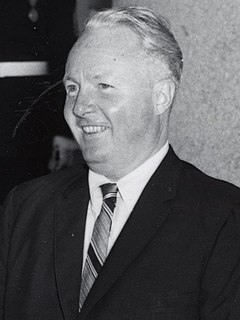
The Boston mayoral election of 1963 occurred on Tuesday, November 5, 1963, between Mayor of Boston John F. Collins and Boston City Council member Gabriel Piemonte. Collins was elected to his second term.

The Boston mayoral election of 1959 occurred on Tuesday, November 3, 1959, between former Boston City Council member John F. Collins and President of the Massachusetts Senate John E. Powers. Collins was elected to his first term, and was inaugurated on Monday, January 4, 1960.

The Boston mayoral election of 1955 occurred on Tuesday, November 8, 1955, between Mayor John B. Hynes and State Senator John E. Powers. Hynes was elected to his third term.

The Boston mayoral election of 1951 occurred on Tuesday, November 6, 1951, between Mayor of Boston John B. Hynes and former Mayor James Michael Curley. Hynes was elected to his second term.

The Boston mayoral election of 1949 occurred on Tuesday, November 8, 1949, between incumbent Mayor of Boston James Michael Curley, city clerk and former acting mayor John B. Hynes, and three other candidates. Hynes was elected to his first term.
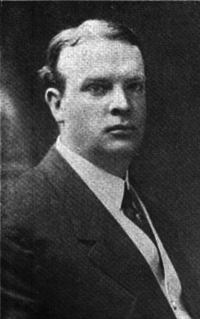
The Boston mayoral election of 1933 occurred on Tuesday, November 7, 1933. Former state treasurer Frederick Mansfield defeated five other candidates to be elected Mayor of Boston.

The Boston mayoral election of 1925 occurred on Tuesday, November 3, 1925. Malcolm Nichols, a former member of the Massachusetts House of Representatives and Massachusetts Senate, defeated nine other candidates to be elected mayor.
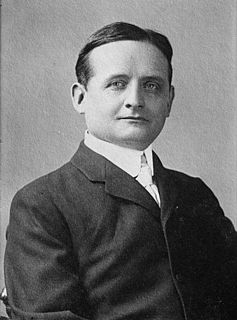
The Boston mayoral election of 1914 occurred on Tuesday, January 13, 1914. James Michael Curley, member of the United States House of Representatives, was elected Mayor of Boston for the first time, defeating Thomas J. Kenny, president of the Boston City Council.





